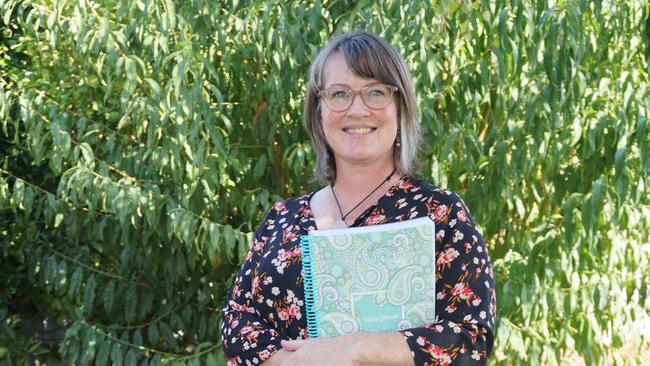Katie Clements: Mildura Greens council candidate wants Section 44 federal election reform
A longstanding rule could be keeping women from running for Federal Parliament – but one Mildura teacher is out to change it.

Mildura
Don't miss out on the headlines from Mildura. Followed categories will be added to My News.
More women could stand for parliament if a barrier affecting public service employees is removed, according to a political hopeful.
Section 44 of the Constitution stipulates anyone holding an “office of profit under the Crown” is unable to be elected federally.
It means government employees, including public school teachers and nurses, are required to resign from their position before becoming a federal election candidate.
People receiving a pension also fall under the same rule.
The High Court has heard the matter before, when Victorian schoolteacher Phil Cleary was found to have an office of profit under the Crown while contesting the 1992 federal election.
Mildura teacher Katie Clements, who last year ran as a Greens candidate in local government elections, planned to seek preselection for the next state and federal polls.
However, she was surprised to learn she was ineligible to stand in her federal seat of Mallee.
Now Ms Clements plans to start a movement against the rule, saying as a voter she wanted to see a good representation of the community on ballot papers.
“Teachers, the nursing community, health community, administration roles, are primarily dominated by women,” Ms Clements said.
“By cutting out a whole section of occupations, you’re actually cutting out a whole cross-section of women who can actually run as a candidate.
“If you’re discounting a whole slab of women, possibly hundreds of thousands of women across the states of Australia, that’s a huge discrepancy and hugely discriminatory.”
Her campaign has already gained support from the person she may one day be trying to unseat.
Federal Nationals Member for Mallee Anne Webster wrote to the Attorney-General to see what could be done after Ms Clements got in touch.
Dr Webster said she agreed the interpretation of Section 44 was unfair and discriminatory.
She said a wide range of professions were covered by the rule, including mayors, and it was fair to have rules about conflict of interest and ensuring people weren’t using their positions for their own benefit.
“But I think if you have one rule for one career, then it should be one rule for all careers,” Dr Webster said.
Election analyst Kevin Bonham said the office of profit rule had frequently been a subject of complaint.
Mr Bonham there were right to return provisions for employees who resign temporarily to contest an election, however there were differences between jurisdictions.
He said there was some support for requiring candidates to resign upon election, rather than at the start of the campaign, but constitutional change would be required.
“Even if it was reformed its possible public service would still put some limits,” he said.
Ms Clements said temporarily resigning still carried risk and uncertainty, in addition to financial pressure.
“I’ve heard of other teachers saying, ‘I’ve had to resign my position to go and then go for this’,” she said.
“Well, I’m not in a financial position to do that, to resign my job as a teacher that I absolutely love, in order to pursue running for the federal seat of Mallee.
“Some might say ‘well, if you’re really serious about it, you’d quit your job’ – well I shouldn’t have to risk my financial security to pursue the opportunity when other people don’t have to.”
Ms Clements intended to raise the issue at a regional Australian Education branch meeting and has launched an online petition.
She said a referendum could be voted on at the same time as other issues and she wasn’t ruling out taking the matter back to the High Court.
“Being the person I am, I’m still keen to run and see what happens, however I want to do it the right way,” she said.




